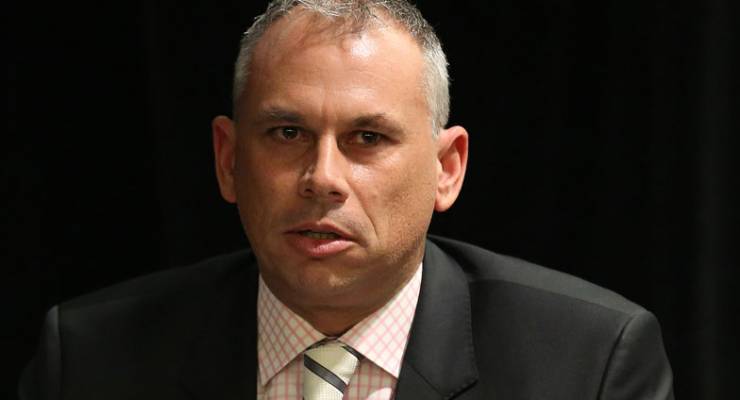
It’s rare to hear a politician speaking the unvarnished truth in the way the Minister for Indigenous Affairs, Nigel Scullion, did yesterday. Despite being a Northern Territory senator for 15 years and the minister responsible for indigenous issues for nearly three years, the long series of revelations, media coverage and inquiry reports into the hellish circumstances of juvenile detention in the Northern Territory had failed, he said, to “sufficiently pique his interest”. He recalled “vaguely” that he’d heard something on the subject last October, but despite it being both his home territory and his portfolio responsibility, given the preponderance of Aboriginal kids in the NT juvenile justice system, he hadn’t thought to seek further information from his department, which just happens to be the pre-eminent department, allegedly the best and the brightest, Prime Minister & Cabinet. Whether the latter had sought to inform Scullion on the subject remains to be seen.
Indeed, Scullion readily admitted he hadn’t even watched the Four Corners program (despite his office knowing its topic and seeking an advance copy from the ABC). He didn’t watch it until an “agitated” Prime Minister called him and told him to do so. Scullion, it seems, is a decidedly passive and incurious minister — except on matters reflecting poorly on his personally, when he stirs himself into action. His Prime Minister, at least, has some functioning political antennae and a working sense of decency — albeit one confined to mainland Australia, since there’s no hint that the sexual and physical abuse happening to women and children under our “protection” on Nauru will ever be subjected to a royal commission.
The government’s response had all the hallmarks of policy on the run, but sometimes that’s not a bad thing. The initial royal commission announcement was that it would be “into the Don Dale Youth Detention Centre”. By the time the Attorney-General was interviewed by Sabra Lane for 7.30 he said “it won’t be limited to the Don Dale Centre”, it “will be broad enough to examine abuses and practices across the juvenile detention system in the Northern Territory”.
Turnbull’s instinct was correct because, judging by his response, NT Chief Minister Adam Giles is wholly incapable of or unwilling to — it’s not clear which — respond effectively. Giles appeared torn between trying to blame the previous Labor government for what he tried to say was “historical footage” and unspecified parties for a “cover-up” and insisting he’d implemented the recommendations of reports his government had received and agreeing a royal commission was worthwhile because, in part, it would “look at whether we’ve made the right decision or not” about his own government legislating to permit the nightmarish “restraint chair”.
It was a different story for Giles’ government back in April, when his corrections minister John Elferink told the NT Parliament legislation allowing for restraint chairs (“devices”, he called them) was “urgent”:
“I acknowledge that the proposed amendments may incite commentary from legal and youth services professions as to the perception that mechanical devices will be used to excess or in such a way that is not proportionate to the risk posed by young people in detention. I make no excuses for the proposed amendments. They are crucial in providing detainees, members of staff at youth detention centres and the public with greater safety and security. They are consistent with this government’s priorities regarding young people in the justice system.”
After all, according to Elferink, “in recent years we have seen children in custody being more violent, dangerous and irresponsible than we have seen before”.
Giles and Scullion have shown two examples of how politicians respond to a crisis. Neither has been particularly becoming. At least Scullion’s admission of a lack of interest was honest.








Why do we think institutionalised violence in detention is restricted to juveniles?
The phrase used by Mr. Scullion, that the information he had been given failed to “…sufficiently pique his interest…” has eerie echoes of Cardinal Pell failing to have his interest aroused over child abuse in the Ballarat area some years ago. I suppose Mr. Scullion can take comfort from the fact that George Pell remains a cardinal, though one who is well-advised to stay away from the land of his birth.
The most telling comment on this disgrace was given by Gillian Triggs on Q & A on Monday night when she referred to the development of a culture that encourages the abuse of persons in detention. The Northern Territory case is far from unique. The treatment of refugees in our gulags, both on and off-shore violates any number of UN conventions to which Australia is a party. Don’t expect any Royal Commission’s into that sordid tale.
Our disregard for basic human rights is encapsulated in our (non) response to the PNG Supreme Court ruling that the detention of refugees on Manus was “illegal”. Where has been the follow up by our msm or Crikey to that ruling?
I suspect that the same will be true of this latest scandal. Outrage, promises that “something must be done”, a report full of recommendations (as with all the previous reports), and studied inactivity.
That the Minister responsible for the detention centre remains as Attorney General is beyond parody.
Cowboys, as far as the eye can see.
Those Terms of Reference are going to be very, very tight for fear that our off-shore concentration camps will be deemed to be within purview.
Wouldn’t that set the pterodactyls amongst the dinosaurs!